Housing in Efficiency House Plus approach
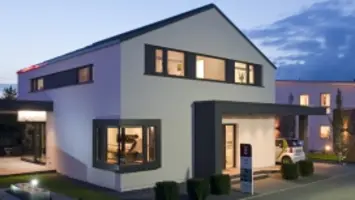

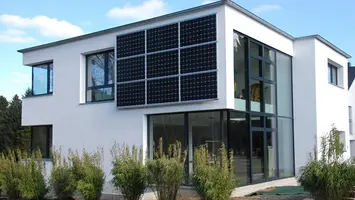
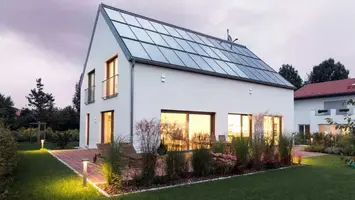
In 2011, the German Federal Ministry of Transport, Building and Urban Development (BMVBS) successfully launched a pilot building constructed in Berlin. The house was the starting point for the research funding programme for demonstration houses that meet the specifications of the Efficiency House Plus standard. To date the programme supported 35 building owners in constructing residential buildings that produce significantly more energy than is needed to operate them. The excess energy produced is used for integrated electric mobility in particular. The buildings are intensively scrutinized under the monitoring programme that the Fraunhofer Institute for Building Physics (IBP) is carrying out. The objective is to use the results to make improvements in the development of components for efficient building envelopes and work out strategies for the supply of renewable energy.
In addition to the already existing network, some pilot projects are still in progress. The monitoring of each of the residential building projects in the Efficiency House Plus standard was completed in 2018.The reports can be found on this webpage. Unfortunately only in German.
Network Efficiency House Plus approach
The implementation of the Efficiency House Plus standard varies between the different projects. Specific needs and environmental conditions determine the use of the building material which leads to architectural and technical differences. A network point was launched to create a platform where knowledge is exchanged and references can be obtained. Since September 2015, ZEBAU incorporates the Information Centre Efficiency House Plus by order of the German Federal Ministry for the Environment, Nature Conservation, Building and Nuclear Safety. The Information Centre deals with all questions on the Efficiency House Plus standard and offers consulting services to anyone interested about building and living in the future, from model projects to financing options. There will be numerous events to encourage an intensive professional exchange between all partners and those who are interested in becoming one.
The network now consists of about 150 partners from the construction and building services industry, universities and other research institutes as well as architects and planners who are successfully acting as multipliers for the Efficiency House Plus standard.
Contact details of the Information Centre Efficiency House Plus:
Mr Felix Bartholomäus
Tel. +49 30 226 663 03
Monday and Thursday from 10 am till 6 pm effizienzhaus@zebau.de
Educational Buildings in the Efficiency House Plus approach
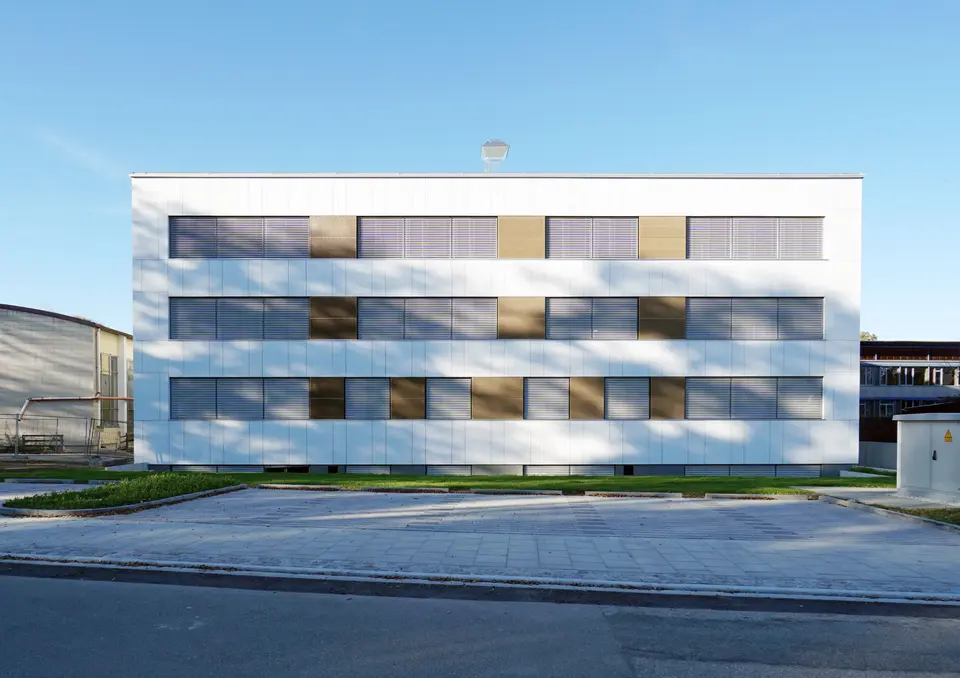

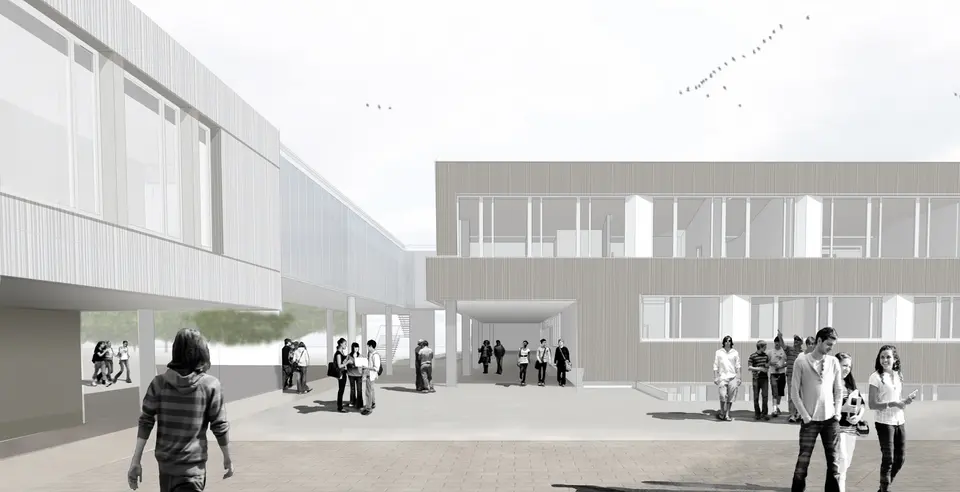
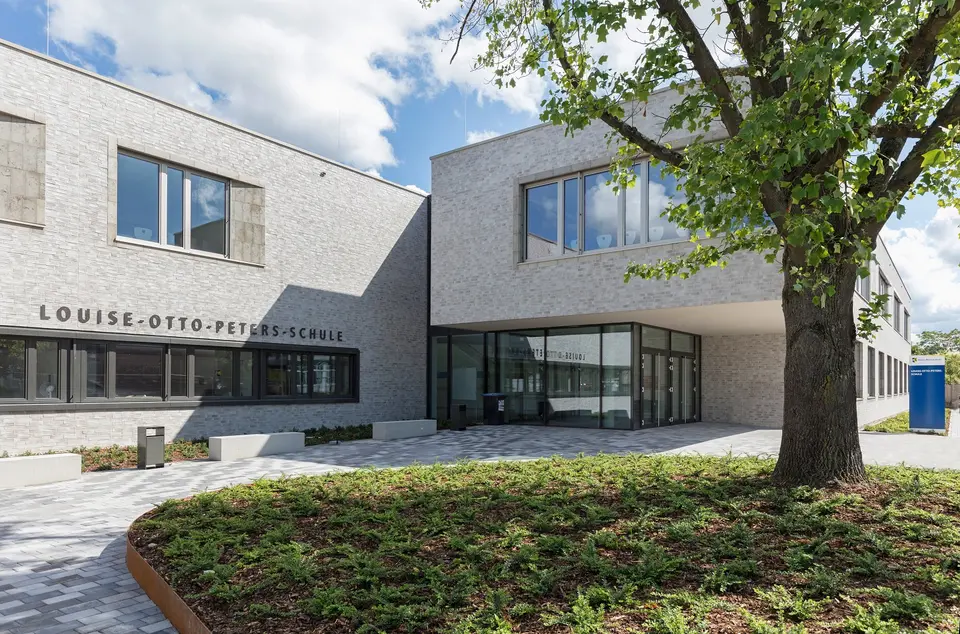
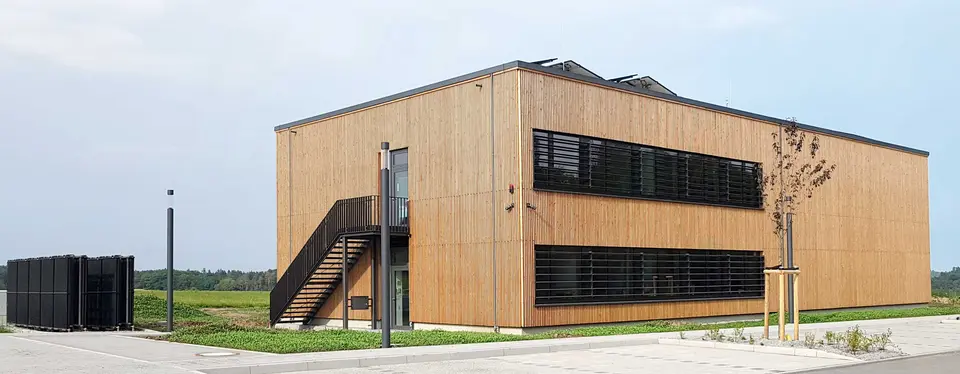
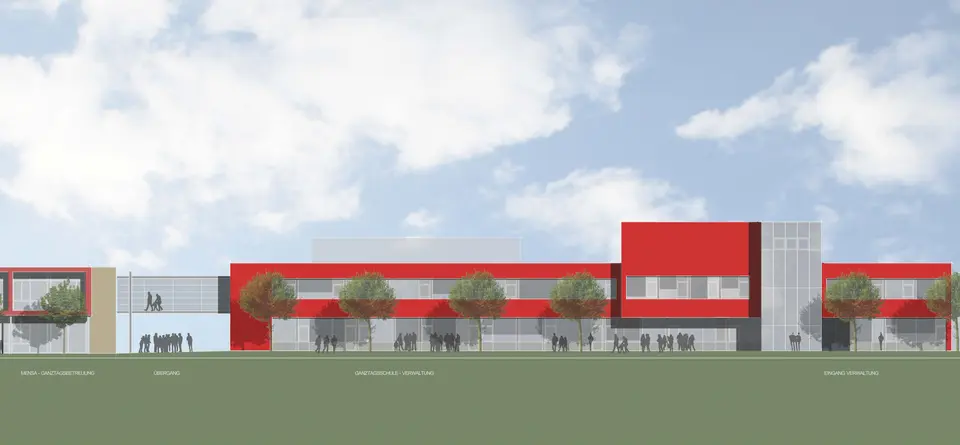

Since January 2015, the Federal Ministry also supports the Efficiency House Plus standard for educational buildings in Germany. The governmental support focuses on national buildings that are used for educational purposes. The funding scheme from the Federal Ministry provides grants for the scientific monitoring of the buildings and innovations in planning, materials and technology among other things.
Here you can find the Download of the publication “5 Years of Educational Buildings conformant with the Efficiency House Plus Standard – Insights from the Accompanying Research”.
General description of an Efficiency House Plus concept
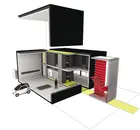
The Efficiency House Plus approach is deemed to have been achieved if a building has both a negative annual primary energy demand (∑Qp < 0 kWh/m2a) and a negative annual final energy demand (∑Qe < 0 kWh/m2a). All other requirements of the Energy Saving Ordinance, such as those relating to insulation to improve summer performance, must also be complied with.
Here you can find the Download of the publication “What makes an Efficiency House Plus? – Principles and examples of energy-generating buildings."
Results of the accompanying monitoring
Social-scientific monitoring
The social-scientific monitoring of the project “Efficiency House Plus with Electromobility” and inhabitants of Efficiency Houses Plus was conducted by the Berlin Institute for Social Research (BIS).
Here you can find the Download of the summary “Living in Efficiency Houses Plus – Results of two studies”.
Scientific Monitoring
The scientific monitoring of the Efficiency Houses Plus from the network Efficiency House Plus was conducted by the Fraunhofer Institute for Building Physics (IBP).
Here you can find the Download of the summary “Energy-efficient new construction of residential buildings – Accompanying research and cross-evaluation of the model projects”.
To get to know more about energy efficient buildings in the EU visit:
BUILD UP - The European Portal for Energy Efficiency in Buildings